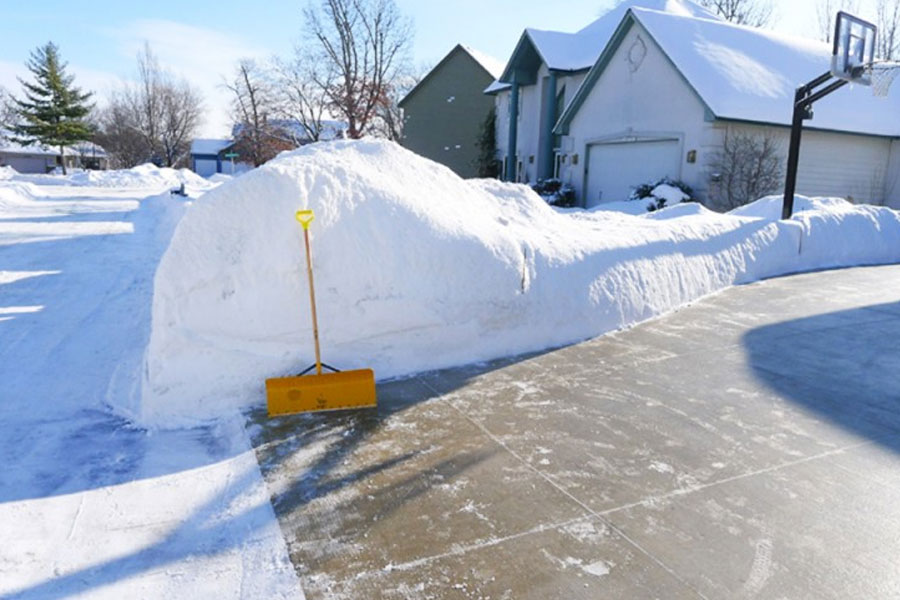
Long, cold, snowy winters are hard on our concrete in Pennsylvania!
We’ve all been there: shoveling along, then being jolted through our arms as the shovel runs into a raised-up crack in the concrete. How can we help to keep our concrete driveways, patios and walkways in the best condition through the lengthy winter months?
Below we inform homeowners on what they should pay attention to in order to extend the life and look of their driveways.
Why is the Winter So Hard on Concrete?
Extreme weather conditions including freezing temperatures, snow, excessive standing water, and various common-use winterizing chemicals all put significant stress on concrete.
Understanding How Concrete Works
No concrete structure can last forever. Factors like the materials used to pour, environmental elements at the time it was poured, age of the structure, sub-concrete soil types and compaction, the surrounding climate, and many more considerations all work to determine how long concrete will maintain structural integrity and stay looking nice. As concrete withstands various stresses and tensions, it weakens, cracks form, and problems tend to increase with momentum.
Pressure on Your Concrete Driveway Caused by Snow, Standing Water Chemicals
Hydraulic pressure is one of the strongest forces of nature. Water is heavy no matter which form it takes. It can move the base soil, and can cause concrete slabs to buckle, shift, and creep.
Standing and melting snow applies a combination of constant weight, moisture, and cold to concrete surfaces which forces moisture into cracks and pores. Once water enters concrete and then freezes again, the ice expands which then weakens the materials. It can cause larger cracks, flaking, and even breaks.
Salt is the first chemical compound that comes to mind when considering winterizing substances. Most, if not all winterizing & ice-melt materials are corrosive, and therefore harmful to concrete surfaces.
Winter Tip #1 – Apply A Concrete Sealant to Your Driveway
While salt is sometimes necessary to help melt ice and snow from your concrete surfaces, it erodes and damaging your concrete. Use it if you must but avoid it if you can. Salt will drip off of your car onto the garage floor or drive way on its own. In many cases you don’t even realize this is happening. We recommend a concrete sealant which will help protect your driveway from salt damage. Call us for more information about concrete sealing.
Winter Tip #2 – Repair Concrete that is Sunken or Uneven
What starts as a toe-stubber or trip hazard becomes a major problem during the winter. Snow removal is hard enough, let alone catching your shovel on an uneven concrete edge or having a plow scrape sunken concrete, causing further damage.
Repair uneven joints and cracks so that the integrity of the concrete is not compromised by snow removal. Snow plowing, snow blowers and even a shovel can cause portions of your driveway to chip off uneven sections of your driveway or sidewalk.
Winter Tip #3 – Focus on Smart Water Drainage Around Your Home
Redirect downspouts and run off during the winter months so water is not being directed under the concrete. Excessive water can freeze and expand beneath your concrete, causing it to heave up and create trip hazards on your property.
If your home has poor drainage, do whatever it takes to direct water quickly away from your property. Dig trenches, put up retaining walls, add gutters, sump pumps, or even contact city officials if survey problems exist.
Winter Tip #4 – Use a Concrete Joint Sealing Product
For slabs poured in more than one section, the joint between pours collect dirt, ice, and water which aids concrete deterioration. This is a soft material caulking to join sections of concrete which allow for thermal expansion and shifting.
